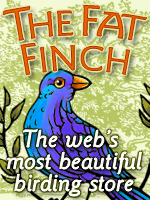It’s that time of year again, when the hummingbirds are heading south and well-intentioned humans living in North America want to know whether to take down their feeders so the little birds will know it’s time to leave.
We won’t keep you in suspense: Leave your feeders out and full of fresh syrup until at least two weeks after you see the last hummingbird.
Hummingbirds have been at the business of migrating far longer than we humans have been at the business of feeding them. We don’t know how long hummingbirds have migrated but fossil evidence establishes a rough time frame: Between 12 and 25 million years.(The oldest known fossil is about 30 millions years old and they began dispersing from South America sometime after that.
On the other hand, modern humans are only a quarter of a million years along and we only been feeding hummingbirds for 100 years or so. (We appear to have affected some migration: A small number of Ruby-throats seem to have adapted to the warmth of the Gulf Coast states in the U.S. and people there who leave feeders out all year. Those birds are skipping the arduous trip across or around the Gulf of Mexico each year. All the rest still make the trip and are not fooled for a moment by warm autumn weather.) When the hours of sunlight and the angle of the sun inform them that winter is on the way, they know to leave and will leave. No self-respecting hummingbird is going to get caught in Minnesota for Thanksgiving. She’ll be basking in Costa Rican sun by then.
 The hummingbirds you see at your feeder today may not be the same birds you saw yesterday. If the conditions were right last night, one batch left and another arrived at your feeders. Heading south, they need all the energy they can store and your feeder will help them along the way. The last migrants will welcome your aid.
The hummingbirds you see at your feeder today may not be the same birds you saw yesterday. If the conditions were right last night, one batch left and another arrived at your feeders. Heading south, they need all the energy they can store and your feeder will help them along the way. The last migrants will welcome your aid.
So, keep your syrup fresh and your eyes peeled and enjoy the last of this year’s hummingbirds. You’re doing no harm by leaving your feeders out. In fact, you’re helping.



